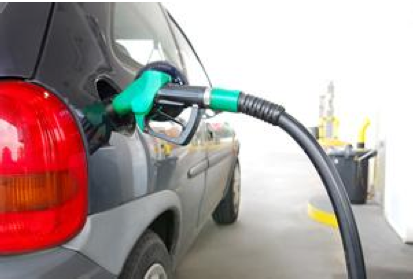
Americans Can’t Afford Weaker Fuel Efficiency Standards. Neither Can the Planet.
On Tuesday, March 31st, the Trump administration announced the rollback of an Obama-era fuel efficiency standard for new vehicles. Lowering fuel efficiency standards for vehicles sold in the U.S. means more carbon emissions and complicates the fight against climate change.
In 2012, the Obama administration created a rule requiring that new vehicles manufactured and sold in the U.S. get an average 54.5 miles per gallon (mpg) by 2025. The Trump administration’s rule reduces the fuel efficiency standard to 40 mpg by 2025, and it revokes California’s waiver allowing it to set a higher standard than the national one.
The Trump administration makes the case that the newly proposed standard will be better for consumers’ wallets and safety, but their arguments are flimsy. The White House’s own economic analysis shows consumers will likely pay more over the lifetime of their vehicles. The White House also argues that consumers will trade in older vehicles for newer, safer vehicles that will save lives. The administration’s own estimates found that the rule could save 470 lives per year. Those estimates, however, don’t take into account an estimated 10,000 more deaths by 2035, due to increased air pollution.
There has been significant opposition to the Trump administration’s announcement of its intent to lower the standard. Scientists project that, under the new rule, cars will emit roughly 1 billion additional metric tons of carbon dioxide than they would have under the Obama rule. ASP and members of the broader national security community have continuously warned that the change could increase U.S. dependence on foreign oil, and it could weaken efforts to make the U.S. military energy independent.
The Environmental Protection Agency (EPA) tasked a group of experts with analyzing the rule change. The group released dissenting views, arguing that the decision to lower the fuel efficiency standard is not based in science or economics. They claim that there are serious flaws in the science used to justify the new standard, citing cherrypicked data that would downplay potential emissions. A separate EPA advisory board issued a statement saying that the economic data the administration used to model trends in car sales is based on “implausible” assumptions. For example, the administration assumed that the number of cars on the road would shrink with the new efficiency standard, which the advisory board suggests runs counter to economic theory.
Some members of the auto industry have also raised concerns over the standard change. Car manufacturers need regulatory stability to plan for the future. While litigation over California’s challenge to the revocation of its waiver continues, there will be two vastly different regulatory landscapes in the U.S. The most populous state in the Union will have a higher standard, while a weaker one will govern the rest of the country. This uncertainty is bad for business, and it undermines the administration’s claim that the regulatory changes will help automakers.
The new standard comes amid the U.S.’ fight against COVID-19. Some automakers have been forced to cease car production to comply with social distancing measures. A few of those that have the protections for their workforce and the capacity to do so are producing emergency medical supplies. The confusion of implementing this change is unhelpful to an industry already in turmoil, as the economic fallout of measures taken to slow the spread of the outbreak will undoubtedly hurt demand for new vehicles.
ASP has long been a proponent of improving fuel efficiency. When a review of the standard was first announced in August 2017, ASP highlighted the importance higher fuel efficiency standards played in establishing American energy independence and promoting national security. In September 2017, ASP’s President Brigadier General Stephen Cheney testified before the EPA, outlining the impact carbon emissions have on extreme weather events that damage military installations, and how less reliance on foreign oil protects the U.S. from fluidity in the global oil market.
Higher standards that reduce emissions are essential to fight climate change, protect public health, and push the U.S. towards energy independence. Unfortunately, the administration’s new rule change sets those goals back significantly. Even if this change were to accomplish the administration’s stated goals, which it doesn’t, fighting climate change demands stricter, smarter policies, not a repeal of successful and widely accepted rules.





